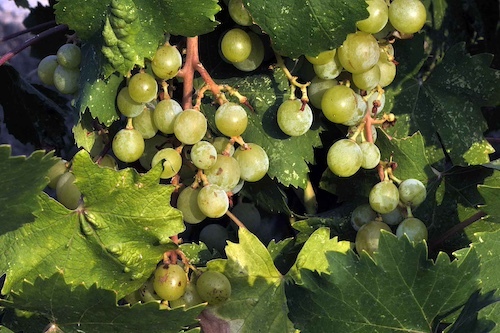In ancient times the Greek Attic calendar counted 12 months and the third month was Boedromion, nowadays half the month September/October. So it was a little odd when the Romans came with their calendar of ten months, with the year starting in March. However, emperor Julius Caesar added two months before March resulting in the Julian calendar starting with January. That is how the ‘seventh’ month September became the ‘ninth’ month in the year.
In 1582 Pope Gregory XIII made the calendar near perfect by creating a leap day in every fourth year. Now the world still lives according to the Gregorian calendar, except in Nepal, Ethiopia, Iran and Afghanistan where they keep their own calendar, just like some religions, such as the Orthodox church, has retained the Julian calendar. The name of the months which were determined by their numbers – September (7), October (8), November (9) and December (10) – have never been corrected.
The past months have now been designated as the hottest Greek Summer ever registered. Exceptional weather already started in June with a dangerous heatwave that took innocent tourists by surprise, who defied the heat by taking walks. Afterwards some couldn’t recount the story of their silly adventures. Some of the more than ten tourists who disappeared on different Greek islands have never been found. The last victim fell some weeks ago on Samos, during the hugely hot month of August.
Greek nature has far more experience with the heat and drought. Whilst this year the grapes seem to have struggled with the high temperatures. September is the month of the grape harvest, but already in August the grape pickers had to fight huge thirsty wasps to get to the fruit and most of the grapes that managed to enjoy sun bathing had vanished even before their month of the harvest had started.
Fig trees didn’t care, they maybe even loved the heatwaves, because already by the beginning of August they had started presenting plenty of ripe fruit. The merciless hot August sun was perfect to dry them. When you take a good look you may even at the end of September still find some sweet ones.
Olive trees are pretty heat resistant, if they benefit from a cool and wet winter. They do not like warm and dry winters, like this past winter. Now some of the trees are empty and petite, yearning for rain, while others are forced to bend their laden heavy branches to the ground (even though the olives seem to be small this year). So it may be that these expectations will provide a far better harvest than the meager one of last year. If not getting destroyed by the biggest enemy of the olive: the fruit fly Dakos. It would be nice if most of these little brats didn’t survive the heatwaves, to be seduced by the many olives already colouring blue. But the first Dakos-victims are already dropping to the earth.
Falcon, the company who in Sigri has some 40,000 olive trees to explore, has declared war upon the Dakos, by, as they did last year, simply starting the harvest at the end of August, instead of end of October or beginning November. Last year it worked out very well: this year they won tree times gold with their olive oil Ol’eve at the most important olive oil contest: NYIOOC (the New York International Olive Oil Competition).
Also the Greek waters have warmed up. In August they measured a record high temperature in the Aegean Sea of 28 oC. Pieria, in north of Greece, saw water temperatures above 30 oC, causing 80% of their mussel population to die, leaving almost nothing to harvest last summer. But that was on their mussel farms, where temperatures always run high. In the Gulf of Kalloni (and Gera) on Lesvos, we have wild mussels. They are not such wimps and can deal with much more.
A warm sea is perfect fuel for extreme rainfall, lightning, heavy storms and other unusual weather pranks. Benefitting from those warm seas is the Parrot fish (Scaridae) who has extended his habitat and now swims all over the up-warming waters of Greece. If this continues the Aegean will become a topical aquarium with plenty of fancy coloured fish and the ninth month called after the seventh month will loose its grape harvest.











